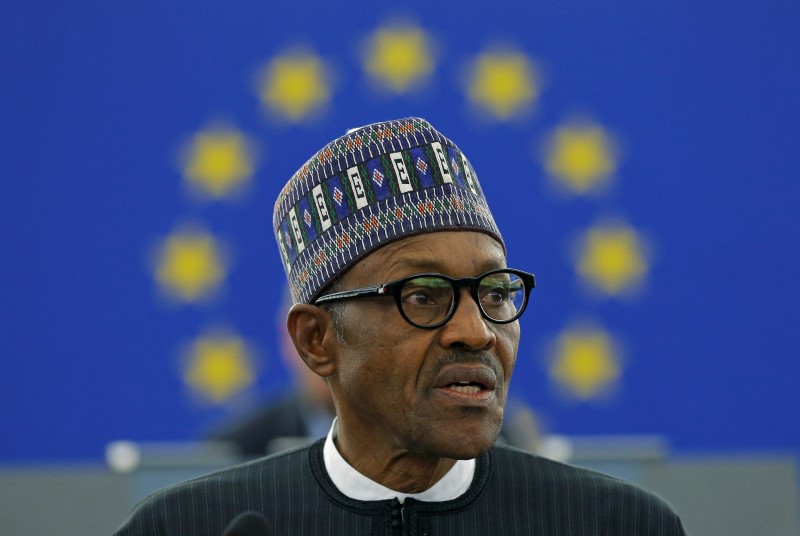LONDON (Reuters) - Nigerians have an image problem abroad which makes it difficult to emigrate to the West, but they can stay at home where their services are needed, President Muhammadu Buhari was quoted as saying by a British newspaper on Saturday.
A former army ruler from the 1980s who returned to power as a civilian after winning an election in March last year, Buhari has the image of an ascetic disciplinarian keen to tackle his country's persistent problems with crime and corruption.
"Some Nigerians' claim is that life is too difficult back home," he was quoted as telling the Daily Telegraph newspaper.
"But they have also made it difficult for Europeans and Americans to accept them because of the number of Nigerians in prisons around the world accused of drug trafficking or human trafficking," he said.
This is a contrast to some other Nigerian politicians, who often argue that their countrymen are unfairly victimised in foreign countries.
"I don't think Nigerians have anybody to blame. They can remain at home, where their services are required to rebuild the country," Buhari was quoted as saying.
The newspaper said Buhari thought a minority of his countrymen could do with improving their behaviour.
"We have an image problem abroad and we are on our way to salvage that," he said.
Buhari first came to power when he led a military coup in 1983, ousting an elected government.
He ruled for 18 months, during which he imprisoned journalists and opposition activists without trial, executed drug traffickers by firing squad and ordered soldiers to thrash those who failed to queue in an orderly fashion at bus stops.
Buhari was himself ousted in the next military coup.

In the years following Nigeria's return to civilian rule in 1999, he reinvented himself as a democrat, culminating in his victory against incumbent Goodluck Jonathan in last year's presidential election.